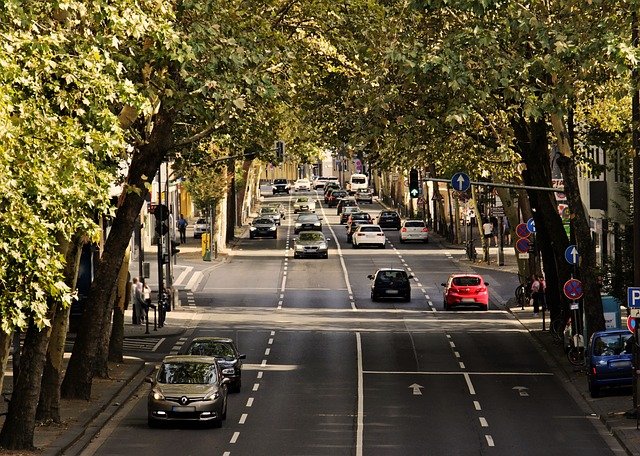LISA ROBERTS • Guest Opinion
Lisa Roberts is a former MLA, a former journalist and present day consultant working to help get non-market housing built. When she drives, it’s a hatchback. Twitter: @lisarobertshalifax
Like every cyclist in Halifax, I winced on Monday. A collision on Hollis Street resulted in “life-threatening injuries” — according to Halifax Regional Police — for a cyclist who was crossing the Prince Street intersection with a protected bike lane. There has been no further update.
My mind immediately flitted to two other collisions that shattered families in the past year. On March 19, Dr. David Gass stepped into a crosswalk on Young Street and did not make it to the other side. Last May 25, five-year-old Max Thomas was buckled into his mother’s car when it was hit in an intersection.
In all three cases, a pickup truck hit something or someone far smaller.
For the sake of our health and safety, we have to talk about trucks.
In cities and towns across Canada, including here in Halifax, citizens are demanding that municipal governments strive for Vision Zero — a strategy to eliminate traffic fatalities that launched in Sweden in 1997, after which traffic-related deaths were cut by half. Edmonton, Hamilton and Toronto have adopted the approach for their road safety strategy. Halifax Regional Council disappointed many advocates in 2018 when it committed to move — with less ambition, perhaps — “towards zero.” Its Strategic Road Safety Framework tracks both collisions and investment in infrastructure — like that protected bike lane on Hollis Street — that should keep vulnerable road users safer.
Except, municipalities are pedalling up a steep hill across Canada, where — to be frank — we have a problem with trucks.
Briefly, let’s address the sensitivity that owners of trucks may feel.
I grew up — happily — looking forward to riding in the back of my Pop’s truck — green in the ’70s, orange in the ’80s, if I recall. I keep a short mental list of friends with trucks and wonder if it would be OK to ask them for favours. I wish it was easier to rent a truck by the hour. They can be handy.
But the evidence is in. Hood heights on trucks are 11 per cent higher since 2000, and weights are 24 per cent greater. Greater size comes with larger blind spots — estimated at 3.3 metres longer than some sedans, according to Consumer Reports.
In the United States, from 1990 to 2019, 931 children were run over and killed, with 80 per cent of such fatalities involving a truck, SUV or van. In Canada, between 2013 and 2016, pickup occupants were 2.5 times more likely to kill the driver of a car, compared to car-vs.-car collisions. Larger, heavier vehicles mean more serious injuries and not for those in the larger, heavier vehicle.
And trucks have gotten larger without being more functional. My grandfather’s pickup truck, which hauled firewood regularly, was easier to get into and had a longer bed.
It is rare that a driver of a truck weaponizes it intentionally as a young man did in an Islamophobic attack that killed four members of one London, Ont. family last June. I don’t, and won’t, stereotype those who choose to drive a truck. Indeed, one may quite reasonably decide to purchase a larger vehicle in order to not be vulnerable on roads plagued by so many larger vehicles.
In Nova Scotia, the trend towards replacing cars with trucks resulted in our greenhouse gas emissions from transportation barely budging, from 5.7 megatonnes in 2005 to 5.6 in 2019. In that way, their size threatens us all. Replacing trucks with gas tanks that cost upwards of $150 to fill with electric ones will not fix the problem — but maybe this gas shock plus another tragic collision can create a moment for political action and individual reflection.
The cyclist emitted no greenhouse gases, unless you count the carbon dioxide they exhaled as they cycled down Hollis Street. Perhaps they cycled for exercise, or for their budget, or motivated by concern about climate change, or because it improves their mood (as it does mine, reliably).
During the pandemic, more people began cycling and the $500 rebate on electric bikes makes it easier for new riders to join them.
But there is a regulatory failure at the federal level where vehicle standards are set. Regulations and incentives to make new vehicles lighter and more fuel-efficient risk being pointless, or even dangerous, if no attempt is made to redress the growing inequality — of size and weight — among personal vehicles on our public roads.
Advocates for safer streets and slower speed limits have focused to date on the municipal level. I hope we can add to their numbers and expand their scope to have a national conversation about the problem with trucks. We deserve roads that are safer for us all.
